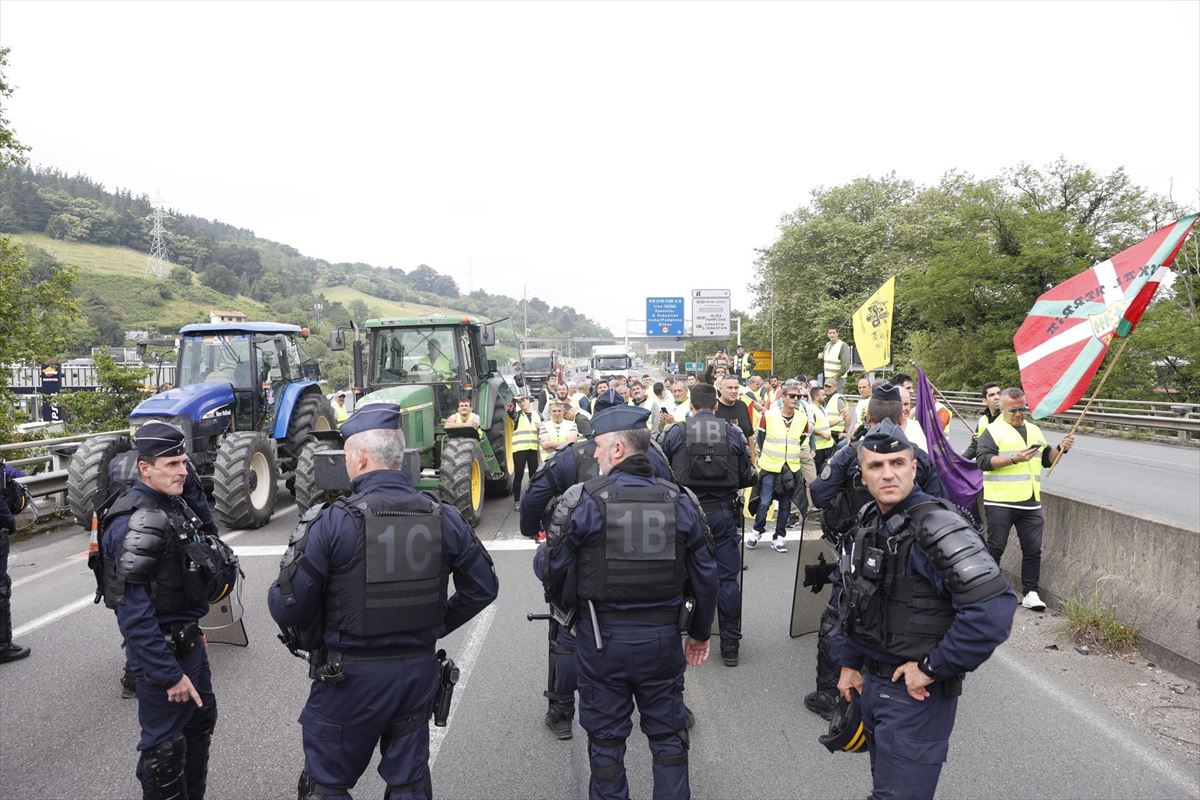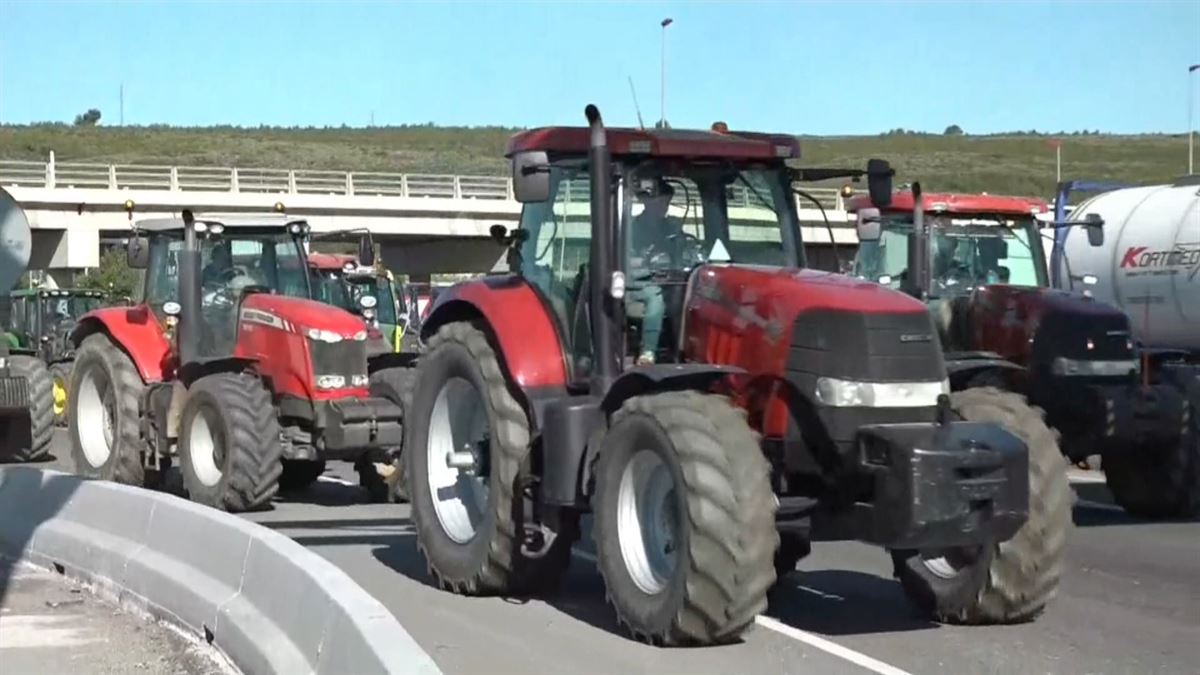In any case, farmers and ranchers are warning that if no progress is made in the summer, they will implement blockades for more days starting in October. Early in the morning there were delays of up to 5 kilometers towards Hegoalde.
Farmers and ranchers from Hegoalde and Iparralde have been blocking since yesterday circulation on the AP-8, in Biriatu, in both directions. If there are no surprises, the protest will basically end today at 10am, after 24 hours of protests. In any case, professionals in the primary sector warn against this if there is no progress in the summer they will carry out blockades more days from autumn.
In this sense, they have warned that they will return to mobilizations on October 30 if the European institutions “do not start negotiating” and have given the summer time to “reach an agreement”.
“We have closed the border between Spain and France as a pressure measure to force a dialogue within the Ministry of Agriculture and with the European Union Commissioner for Agriculture. We hope that we can negotiate a precise calendar,” said the spokespersons of the organizations.
The protest mainly concerns the passage of trucks and the movement of goods, and the rest of the vehicles, such as cars or emergency services, can continue driving one lane in each direction. However, It hasn’t been a total blockage, because they had to open a toll booth in Iparralde to prevent trucks from blocking the exit to hospitals. At 8am, delays were only half a kilometer towards Baiona, as security department sources explained to eitb.eus. However, at that time the traffic jams on the A-63 amounted to 5 kilometers. Traffic on the N-121-A, towards Irun, has also suffered 1.5 kilometers of delays.
Yesterday, it was ultimately the Iparralde tractors that collapsed traffic on both sides, as French police prevented tractors from Gipuzkoa and Navarra from accessing the toll, which is on French territory. For this reason, they had to leave their vehicles in Zaisa area, Irun, and walk to the highway. The organizers hung a large banner with the text on the arches of the Biriatu toll booth “this is where the resistance of European agriculture begins”.
The protests have been called by various agricultural associations to which they have joined agricultural organizations of Álava, Gipuzkoa and NavarraAttack, Bagea and Platform 6F, respectively.

Organizers have explained that the protest coincides with the week in which the European Parliament elections will take place. Their main demands include asking for greater control over imported products, priority for local production and tax cuts for food production, among other things.
They also demand “greater food safety for products entering Europe and their regulation through mirror clauses while improving food chain regulation and applying a European law of preference for local products.”
A woman from Alava is calling for farmers’ energy taxes to be abolished and has warned against ‘mirror clauses’. “That the food that comes here meets the same conditions that they force us to meet,” he claimed, demanding “a future for the sector.” “We took to the streets and we were not treated with enough respect and our demands were not listened to,” he complained.
In the same way, Basque farmers are asking for “fair prices” because “in the end we are at the prices of years ago, and the diesel goes up, the feed goes up.” “Our salaries come from what we collect from the land and the animals. When you go to the factory you have your wages, here we get our wages from our fields,” said one of the baserritarras.
In addition to Biriatu, farmers and ranchers are implementing traffic restrictions at seven other points on the Spain-France border.

Source: EITB
I’m Wayne Wickman, a professional journalist and author for Today Times Live. My specialty is covering global news and current events, offering readers a unique perspective on the world’s most pressing issues. I’m passionate about storytelling and helping people stay informed on the goings-on of our planet.



